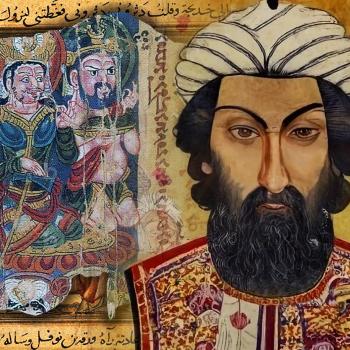I am not a C. S. Lewis groupie. Neither, for that matter, is Alister McGrath. It feels important to say so at the outset of my review of McGrath's magisterial biography, C. S. Lewis: A Life, for many writers on Lewis seem to be friends of The Great Man, or came to faith through him, or found Lewis an inspiration to the life of intellectual devotion they now live. Likewise, many readers of Lewis have strong feelings about the man because he has assumed a stature in their eyes comparable to sainthood: Oxford Christian, author of the Narnia books, defender of the faith, unlikely but unmistakable Evangelical icon.
I don't find the Narnia books particularly well written, and while I've read Lewis's books on faith, I gravitated toward the least guarded—his diary of grief, A Grief Observed—and to his writing on the Psalms. My acquaintance with Lewis actually came where I think McGrath seeks to situate him in this biography, "the least familiar to most of his admirers and critics," in his role as distinguished professor and scholar of English literature, and one of the first important early figures in the modern study of Medieval and Renaissance literature. (xi) In my Ph.D. work, I happened across Lewis' Preface to Paradise Lost and his book The Four Loves, both of which were written with grace and fluency, and both of them opened up the world of literature and the life of the mind a bit wider for me.
McGrath, himself a distinguished Oxford don and defender of the faith, himself an Irish-born Anglican, comes to Lewis with the intent of writing a literary biography, not of canonizing or appropriating him, and the book succeeds admirably on all these counts. Rather than canonizing Lewis, McGrath's meticulously detailed book succeeds in humanizing him, detailing the tensions in his family, and relating his friendships, his poverty and desire to support his "family" (Lewis had a long and "It's Complicated" relationship with the mother and sister of a fellow soldier killed in WWI), and his significant accomplishments. McGrath provides a convincing explanation for the dearth of writing about Lewis's war experience, despite the fact that he witnessed great death and destruction and was himself wounded in action seriously enough that he was sent from the battlefield to recuperate.
In Surprised by Joy, Lewis describes the "treaty with reality" he was forced to make in order to keep the war at a distance, and McGrath expands on that short reference to Lewis's wartime experience: "Lewis's mental map of reality had difficulty accommodating the trauma of the Great War. Like so many, he found the settled way of looking at the world, taken for granted by many in the Edwardian age, to have been shattered by the most brutal and devastating war yet known." (51) Part (McGrath suggests) of Lewis's well-documented search for truth and meaning, that search that ultimately led him to Christianity, emerges from the desire to make sense of his traumatic experience in ways that satisfied him spiritually, emotionally, and intellectually. Although Lewis does not write about the war, then, his experience in the war may in fact have been formative.
As the first biography to benefit from the publication of the collected letters of C. S. Lewis, A Life can give us more human details and explanations that any of the previous works. In fact, McGrath cites the letters more than any other source, for they, as he argues, force review and possible revision of some generally-accepted biographical truisms that no longer seem true with the letters at hand. (xiii-xiv) He revises, for example, the generally-accepted chronology of Lewis's coming to faith. The letters also expand our picture of his relationships. One of Lewis's great friends came out to him when they were both young men, and Lewis's response was charming and not the least bit priggish. Although he did not share that orientation, he wrote, "Congratulations old man. I am delighted that you have had the moral courage to form your own opinions." (72) Likewise we learn that Tolkien had entrusted the younger Lewis with a long poem he had been writing, their first such delicate dance, and that Lewis—thankfully for all of us—encouraged Tolkien to undertake more in one of their earliest letters: "I can quite honestly say that it is ages since I have had an evening of such delight." (130)





